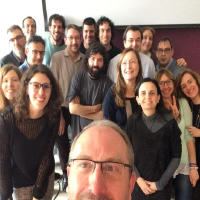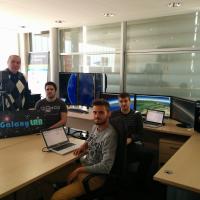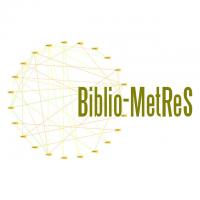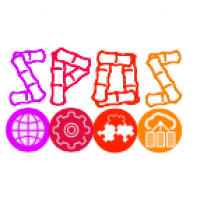GCD is the Distributed Computing Group of the University of Lleida.
The research carried out by the Distributed Computing Group (GCD) of the University of Lleida is orientated to the parallel computation in heterogeneous Cluster/Multicluster and Peer-to-Peer (P2P) environments. In this framework, the most important contributions have been realized in topics of modeling of parallel applications, mapping and scheduling of tasks, scheduling of computational resources, prediction of performance and access to large scale multimedia services.
Our projects
-
This project aims to study the relationship between youth migration, social movements and social media. The project is focused on the Catalan young migrant’s experiences, connected to other recent migrant experiences, especially those done by graduate people, also called ‘brain drain’.
-
Disease Discovery is a website to aid physicians in their diagnoses, especially in rare diseases that are difficult to diagnose, as they are quite unknown. Given a set of symptoms, the website gives the most probable diseases. The medical staff can then have a tool to help diagnose diseases according to patient symptoms.
-
Liquid Galaxy is a cluster display wall hemisphere infrastructure developed by Google. It was conceived to execute Google Earth and provide an immersive geographical visualization.
-
The automated reconstruction of biological networks from the automated analysis of available biological information is one of the important goals of bioinformatics and computational biology. MetReS is a project that integrates different tools and methods to analyze various types of data and contribute to such a reconstruction. There are different aspects to this effort.
-
The project seeks out for higher scientific productivity by joining the efforts of the UAB and UdL groups in a coordinated project. The main goal of this project is the research on ideas, techniques, policies, and mechanisms for the efficient execution of multidisciplinary applications with high computing and data requirements on systems in the multi/many core era, including clusters, peta/exascale supercomputers, peer-to-peer systems, and cloud computing systems.
-
Ranking is a website that orders companies evaluating commercial issues. There are many variables that affect this rating: firm size, profits, its market value, its financial assets, number of employees, innovation capacity, the situation facing the crisis, etc.. Today, these are not as important aspects. Increasingly, consumers look beyond at issues such as ecology, exploitation of staff, etc. .., ie fair trade practices.
-
SPOS (Stochastic Programming Optimization Service) is an ongoing cloud service with a lot of potential to become a reference in the optimisation on cloud market, offering to any user the possibility to solve any kind of linear model, even stochastic models, and obtain the results in a detailed and personalised way. Combines linear programming and cloud computing in a user-friendly GUI.







